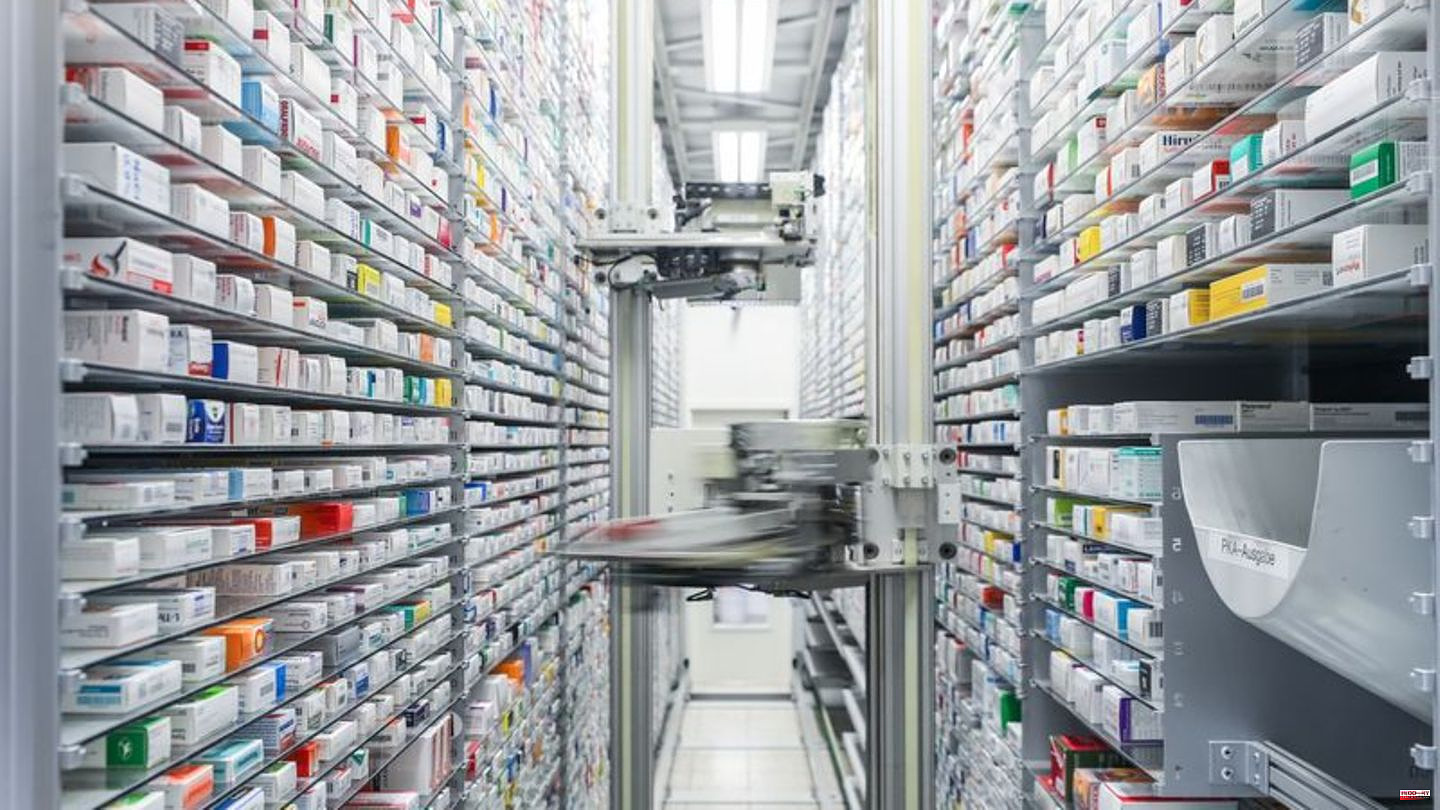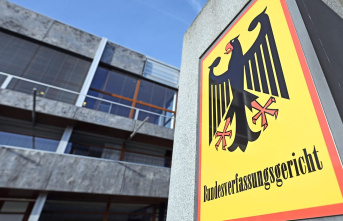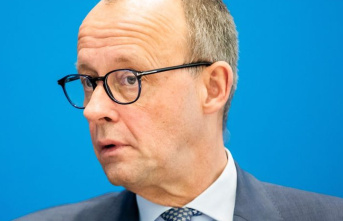Due to delivery bottlenecks for some medicines in the acute wave of infection, the statutory health insurance companies (GKV) are demanding concrete remedies on site. "In the current situation, the pharmacies and their skills are required," said the head of the National Association of Statutory Health Insurance Funds, Doris Pfeiffer. You could, for example, prepare fever juices with recipes yourself and get paid for it. Pharmacies and wholesalers are called upon not to hoard urgently needed medicine.
In view of the tense personnel situation in many places, the hospital industry advocates an end to the obligation to isolate corona-infected clinic employees without symptoms of illness.
Recently there were delivery problems with children's medicines such as fever and cough syrups. Means for adults are also affected, such as cancer drugs and antibiotics, as Federal Minister of Health Karl Lauterbach (SPD) explained. In order to counteract problems, he has also announced a draft law for the coming week. The ministry points out that not all delivery bottlenecks also mean supply bottlenecks. For pharmacies, the bottlenecks mean more effort to find alternatives for preparations that cannot be delivered.
GKV: Unacceptable situation that sick children have to suffer
GKV boss Pfeiffer said with a view to the pharmacies: “We trust that in this emergency situation the specialist staff will be available to the patients with advice and action.” At the same time, she complained: “It is an intolerable situation that sick children have to suffer from the pharmaceutical industry’s current lack of ability to deliver.” The transparency of the availability must be further increased so that there are not such serious effects if certain funds are not available. Reporting obligations for companies and non-availabilities by pharmaceutical wholesalers and pharmacies are necessary.
Union health expert Tino Sorge called for Lauterbach to bring countries, manufacturers and wholesalers together. Alternative procurement and distribution options must be agreed before the end of the year. "Quick decisions are needed now," said the CDU politician. The announcement of laws alone does not help children and their parents.
"Bringing the production of medicines back to Europe"
The federal government also wants to change procurement law. The aim is to broaden supply chains in order to reduce dependency on individual manufacturers. The FDP health expert Christine Aschenberg-Dugnus said: "We have to bring the production of medicines back to Europe." Incentives should be set for this. Intensive care physician Christian Karagiannidis, a member of the government commission for hospital care, said on ZDF: "Perhaps we also have to discuss the fact that we need federal production facilities for vital medicines."
Delivery bottlenecks can also be felt in medical practices. "The problem is not new, the extent is," said the Vice-Chairman of the Association of General Practitioners, Nicola Buhlinger-Göpfarth, the editorial network Germany. Many drugs could be replaced by others. But that requires clarification. "Especially now, when the family doctor's surgeries are packed due to the strong waves of infection, this is an additional time burden that can only be afforded to a limited extent."
In general, the situation is also tense in many clinics. "We have so few free intensive care beds that we didn't have in the whole pandemic," said Karagiannidis, who is President of the German Society for Internal Intensive Care Medicine and Emergency Medicine, on ZDF. Emergency rooms and normal wards are "quite full" so that "in principle we are almost no longer able to act." In contrast to Corona, however, there is the prospect that the wave will reach its peak “sometime now” and then go down again.
End of the Corona isolation obligation demanded
The German Hospital Society spoke out in favor of ending the corona isolation requirement for clinic employees without symptoms. "We are now also realizing in our neighboring countries that the pandemic has increasingly lost its danger," said CEO Gerald Gass of the editorial network Germany (RND). Therefore, a lifting of the obligation is justified, especially in view of the sometimes dramatic staff shortages in hospitals. The board of directors of the Patient Protection Foundation, Eugen Brysch, warned against a repeal. “Like the stop sign regulates dangers on the road, so does the obligation to isolate Corona: It protects others,” he told RND.












